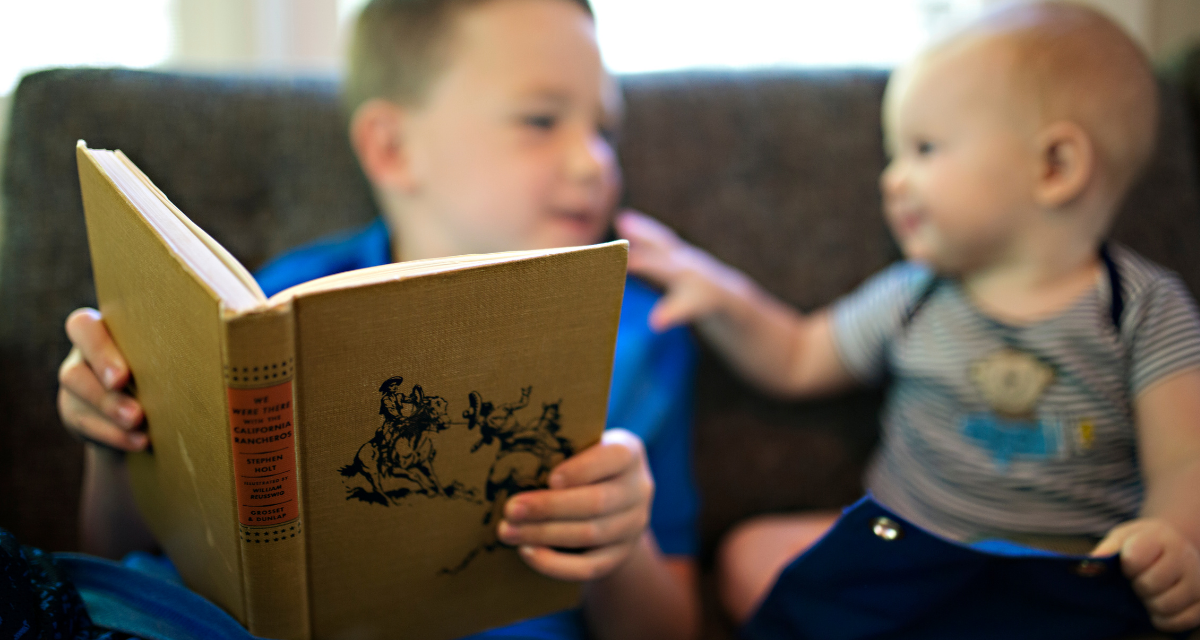
Learning to Read Early Really Is the Number One Indicator of Future Academic Success
As a primary elementary school teacher that works with young children all of the time, I get asked frequently for advice from concerned parents of toddlers.
“What should I be doing with my child now, so they are ready for kindergarten in a year or two?”
The answer is easy. Teach the child how to read as early as possible without getting them frustrated in the process.
My Own Story
I grew up in a family of eleven, where very little time was spent on academics. We struggled financially, and my parents were doing their best, just getting all of us kids fed and clothed. Because of the circumstances I grew up in, I showed up in kindergarten, not knowing the alphabet, reading any words, or counting to ten.
In the next three years in school, I was playing catch up so I could equal the rest of the class’s academic skills. By third grade, I was at the top of the class, but it was a tough road of feeling constant frustration every day that I climbed on the school bus knowing that I was behind everyone else on basic knowledge.
Superhero Origin
Every superhero in comic books has something traumatic happen to them that shapes their life for the better. I took my difficulty with reading and later earned a Master’s degree in Reading and Literacy with a specialized Reading Specialist certificate to help those struggling students later on that reminded me of myself.
Reading Is the First Skill That Needs to be Developed in Toddlers
Every subject in school centers around reading. Even mathematics has directions that must be read closely and story problems to solve where it would be difficult to know how to approach the math problem without reading skills.
Research indicates that if you would love for your child to succeed in school, they must learn to read early. If not, just like what happened to me, they will be struggling right out of the gate.
Use Research-Based Strategies
Rather than choose strategies and activities, hoping that they will help your child learn to read, stick with research-based strategies that are proven to work, and then go from there.
I have worked with children that could not read one word, did not know the alphabet, and did not even speak the English language, and within a year, they had improved upon their reading skills two to three grade levels.
It’s all about using strategies, creating excitement, and keeping the children from getting frustrated that they learned to hate reading.
How to Start
Before a child can start reading, they must know the letters. Being able to name the letter and the sounds it can make will lead to decoding unfamiliar words. Here are a few strategies and activities I use with toddlers that usually works to get them reading, at least a little bit, in no time.
- Alphabet blocks for naming letters and discussing sounds.
- Systematic and sequential phonics and decoding system.
- Read early and often with your child and ask them questions along the way since comprehension is the primary goal of reading.
- Print out Fry’s Instant Sight Words and allow them to master the first ten before moving on down the list.
- Find independent reading books that interest them.
- Use technology! There are numerous apps and websites that will help teach them how to read.
- Re-read the books the child is interested in. They love hearing stories over and over! Plus, they will start picking up on the words themselves just from sight.
- Develop a Word Wall with the mastered Fry’s Instant Sight Words and visit it often.
- Make it fun! Reading opens up a whole other world to the child to enjoy. Please don’t make it seem like work.
Need Assistance?
There are times when a child will listen to any other adult besides their parents for some reason. We have all seen it or been there ourselves. If you need some assistance in helping your child learn to read, iAchieve has the best tutors around. Plus, we can tutor entirely online, so there is no need to worry about COVID or travel from place to place when schedules are busy.
RELATED BLOG POSTS
Using Manipulatives to Improve Reading Skills



